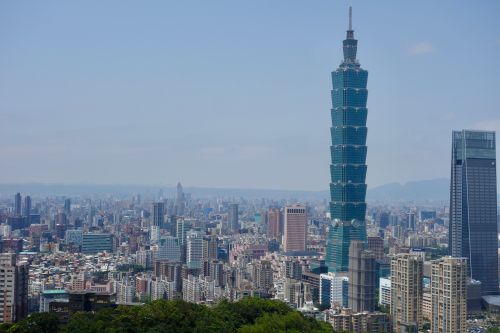TAIPEI, Taiwan (BRAIN) — The Trump Administration’s ongoing dance with the Chinese over tariff issues — and with no end point in sight — has Taiwanese manufacturers and suppliers continuing to evaluate supply chain logistics.
That seems to be the consensus among a variety of attendees as the Taipei International Cycle Show gets underway Wednesday morning. And as the global trade pattern for bicycles, parts and accessories continues to shift more companies are also financing new factories and machinery to hasten the adoption of more automation.
For example, Marwi’s James Huang noted in an email to BRAIN that the Taichung company continues to focus on automation at its Taiwan facility as well as its factory in Indonesia. Marwi is one of the largest pedal manufacturers in the industry with facilities in the Netherlands, Germany, the Czech Republic and the United States.
KindShock, also known as KS, is best known for its high quality dropper posts. The company, founded by Martin Hsu, is building a new and larger factory in Tainan about 85 miles south of Taichung.
“One main focus is the automation of much of the production process to increase capacity, consistency and quality,” said Rick Taylor, KindShock’s director of U.S. operations. “We feel this will give KS a significant advantage going forward,” he added. KS also has a factory in China that makes non-bicycle products.
As for supply chain issues, Taylor and others said there is a clear movement away from China. “Most Chinese (-based) assemblers are looking to move and some have already moved to countries with favorable trade (policies) with the U.S.,” he said. Most of that movement has been to Cambodia and Vietnam, Taylor added.
Steve Gluckman, a consultant, said other factors are also reshaping Taiwan’s bicycle industry. Gluckman spent 28 years at REI as Novara’s general manager and later led development of the cooperative’s Co-op brand of in-house bikes.
Gluckman pointed out that Taiwan’s assemblers and factories are busier than ever because of international trade policy. But it’s a mixed picture. Gluckman, a frequent visitor to Asian factories, said Trump’s tariffs and Europe’s ongoing anti-dumping duties levied against China are taking a toll.
“China’s factories are feeling it. When I was in China in January, the impact of these trade policies was quite clear. Everyone I spoke with had excess capacity. I also heard about layoffs, extended Chinese New Year vacations, and even some closures,” he said.
But Gluckman and others also pointed out that an overall drop in Taiwan exports of traditional bicycles is affecting component makers even as the dollar value of regular bicycles is increasing. Data recently released by Taiwan’s Customs Administration reflects that trend.
According to Customs officials Taiwan exported approximately 200,000 fewer traditional bicycles last year even as e-bike exports picked up. But the increase in e-bike exports failed to improve profits for some component makers.
The formula is simple, Gluckman said. An overall reduction of pedal-only bikes being produced equal fewer components ordered. “In general there is a lot of price sensitivity among product managers when it comes to things like handlebars, stems, seatposts, and pedals, “Gluckman said.
Others point out that as suppliers seek lower pricing for e-bikes, they are further squeezing manufacturers and are spec’ing e-bikes with either in-house brands or unbranded stock parts.
Mark Vandermolen, managing director at FSA, also agrees that Trump’s tariffs are forcing a revamp of supply chains from China back to Taiwan and other countries.
“Trump’s tariffs have been and continue to be unpredictable. With the long production lead-times for complete bikes, we’ve definitely seen bike brands and assembly factories choose to pivot to locales that would help alleviate the tariff burdens,” Vandermolen said.
“Regardless of the eventual tariff outcomes, I expect this pivot will continue as brands and assemblers seek stability in the short to midterm future,” he added.
But as suppliers try to pivot back to Taiwan, transferring production out of China, they are making the rounds at a variety of factories and assemblers looking for favorable pricing, especially in the highly competitive e-bike market. However, most Taiwan facilities are running at full tilt and are reluctant to take on new business that could have an impact on their current customers.
The picture is further complicated by the rising cost of Taiwanese labor and an ongoing lack of interest by Taiwan’s youth in factory work. “This seems to be a universal challenge regardless of country or region. That being said, I don’t characterize it so much as finding good help — I see it more of finding help where there is a good fit between people and the company. A lot can be achieved when both parties have like-minded outlook, objectives and drive,” Vandermolen said.


